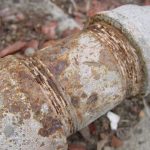Gas line plumbers provide a range of essential services that contribute to the proper functioning and safety of gas systems. These skilled professionals play a crucial role in addressing various aspects of gas line installation, maintenance, and repair. Below are eight key services offered by gas line plumbers, each contributing to the overall efficiency and safety of gas systems.
Gas Line Installation
Gas line plumbers excel in the meticulous installation of gas lines, ensuring compliance with safety codes and regulations. This service involves careful planning, precise measurements, and the selection of appropriate materials to establish a reliable and secure gas distribution system. From residential homes to large-scale industrial complexes, gas line plumbers leverage their expertise to create systems that meet the specific needs of the space while prioritizing safety.
Leak Detection and Repair
Gas leaks pose a significant threat due to the flammable nature of natural gas. Gas line plumbers employ advanced techniques and equipment to detect leaks promptly. Once identified, these professionals swiftly proceed with repairs to eliminate the potential dangers associated with gas leaks. The proactive approach to leak detection and repair is crucial in preventing accidents and ensuring the safety of occupants within the space.
Appliance Connections
Gas line plumbers specialize in connecting various gas-powered appliances to the gas supply system. This includes stoves, ovens, water heaters, furnaces, and more. The precise and secure connection of these appliances is essential to guarantee their optimal performance and prevent any potential gas leaks. Gas line plumbers carefully assess the requirements of each appliance, ensuring proper installation and adherence to safety standards.
Gas Line Inspections
Routine inspections are fundamental in identifying potential issues before they escalate. Gas line plumbers conduct thorough inspections of existing gas systems, examining pipes, connections, and appliances for any signs of wear, corrosion, or damage. Through these inspections, plumbers can detect and address issues early on, mitigating the risk of gas leaks and system failures.
Emergency Services
Gas line emergencies demand immediate attention to safeguard lives and property. Gas line plumbers are available for round-the-clock emergency services, responding promptly to calls concerning gas leaks, sudden pressure drops, or any other critical issues. Their swift and decisive action is crucial in preventing disasters and ensuring the timely resolution of urgent situations.
Pressure Testing
Maintaining optimal gas pressure is essential for the efficient operation of gas appliances and the overall safety of the system. Gas line plumbers conduct pressure testing to assess the integrity of the gas lines and ensure they can withstand the required pressure levels. This proactive measure helps identify weaknesses in the system and allows for necessary adjustments or repairs to prevent potential issues.
Upgrades and Retrofitting
As technology advances and safety standards evolve, gas line plumbers play a pivotal role in upgrading existing gas systems to meet current regulations. This includes retrofitting older systems with modern components, enhancing safety features, and improving overall efficiency. Upgrades performed by gas line plumbers contribute to the sustainability and compliance of gas systems with the latest industry standards.
Leak Detection and Repair
Gas line plumbers possess a keen expertise in the detection and swift resolution of gas leaks, a service that stands as a cornerstone in ensuring the safety of any gas system. Employing cutting-edge technology such as gas leak detectors and infrared cameras, plumbers can pinpoint even the most minuscule leaks that might otherwise go unnoticed. Rapid identification is paramount, as natural gas, being odorless and colorless, can pose severe hazards without early detection. Once a leak is identified, gas line plumbers proceed with precision and urgency to repair the affected section. Utilizing their technical acumen, they may employ welding, sealing compounds, or replace damaged components to restore the integrity of the gas line. This proactive approach not only mitigates potential dangers but also underscores the plumber’s commitment to safeguarding life and property. The meticulousness displayed in leak detection and repair reflects the high stakes involved in working with gas systems and exemplifies the professional dedication of gas line plumbers to maintain the utmost safety standards in their craft.
Educational Outreach
Gas line plumbers engage in educational outreach to raise awareness about gas safety practices among homeowners and businesses. This involves providing information on the signs of gas leaks, proper appliance usage, and emergency response procedures. By sharing their knowledge, gas line plumbers empower individuals to take a proactive role in maintaining the safety of their gas systems and responding appropriately to potential issues.
Things to Consider When Hiring a Gas Line Plumber in Los Angeles
Hiring a gas line plumber in Los Angeles requires careful consideration to ensure the safety, efficiency, and reliability of your gas systems. Given the critical nature of their work, it’s essential to evaluate various factors before making a selection. Here are key considerations to keep in mind:
Licensing and Certification
When hiring a gas line plumber, the first and foremost consideration is their licensing and certification. In Los Angeles, and throughout California, gas line plumbers must be licensed by the state to ensure they have the necessary training and expertise. Check for valid licenses and certifications, confirming that the plumber meets the regulatory standards set by relevant authorities. A licensed plumber not only signifies competence but also ensures compliance with safety regulations, providing you with peace of mind regarding the quality of work.
Experience in Gas Line Work
Gas line plumbing is a specialized field that requires a unique skill set. Assess the plumber’s experience specifically in gas line installation, maintenance, and repair. An experienced gas line plumber is more likely to have encountered a diverse range of issues, enabling them to handle complex situations with confidence and efficiency. Inquire about the number of years they have dedicated to working on gas systems and any specific projects similar to your requirements. A seasoned professional is better equipped to navigate challenges and deliver reliable solutions.
Insurance Coverage
Gas line work involves inherent risks, and accidents or unforeseen events can occur despite careful planning. Ensure that the gas line plumber carries adequate insurance coverage, including both liability insurance and workers’ compensation. Liability insurance protects you in case of damage to your property during the job, while workers’ compensation provides coverage if a plumber sustains injuries while working on your premises. Verifying insurance coverage not only safeguards your interests but also reflects the professionalism and responsibility of the plumber.
References and Reviews
Seek references from the gas line plumber and take the time to read reviews from previous clients. A reputable plumber should willingly provide references, showcasing their track record and client satisfaction. Online reviews can offer valuable insights into the plumber’s reliability, workmanship, and adherence to deadlines. Platforms like Yelp, Google Reviews, or even testimonials on the plumber’s website can provide a comprehensive view of the experiences of others who have enlisted their services.
Adherence to Safety Standards
Gas line work demands strict adherence to safety standards and regulations to mitigate the risks associated with natural gas. Inquire about the plumber’s commitment to safety protocols, including their awareness of local building codes and industry guidelines. A conscientious gas line plumber should prioritize safety measures such as pressure testing, leak detection, and proper equipment usage. Their dedication to safety not only protects your property and occupants but also reflects a commitment to ethical and responsible plumbing practices.
Transparent Pricing and Contracts
Clear and transparent pricing is crucial in establishing a fair and mutually beneficial arrangement. Request a detailed estimate that includes all potential costs, such as materials, labor, and any additional charges. A reliable gas line plumber will be transparent about their pricing structure and provide a written contract that outlines the scope of work, timelines, and payment terms. This transparency fosters trust and ensures that both parties are on the same page regarding expectations, minimizing the likelihood of misunderstandings.
Availability for Emergency Services
Gas line issues can arise unexpectedly and often require immediate attention. Inquire about the plumber’s availability for emergency services, especially if you operate a commercial or industrial facility where downtime can have significant consequences. A gas line plumber with a prompt response time and availability for emergencies demonstrates a commitment to customer satisfaction and the safety of your property.
Communication and Customer Service
Effective communication is key to a successful plumbing project. Evaluate the plumber’s communication skills, responsiveness, and willingness to address your concerns. A professional gas line plumber should be accessible, provide regular updates on the project’s progress, and be open to answering any questions you may have. Good customer service is indicative of a plumber who values their clients and is dedicated to fostering positive relationships.
Conclusion
Hiring a gas line plumber in Los Angeles requires a comprehensive evaluation of their qualifications, experience, safety practices, and customer feedback. Taking the time to consider these factors ensures that you choose a reliable professional who can effectively address your gas line needs while prioritizing the safety and well-being of your property and its occupants.





